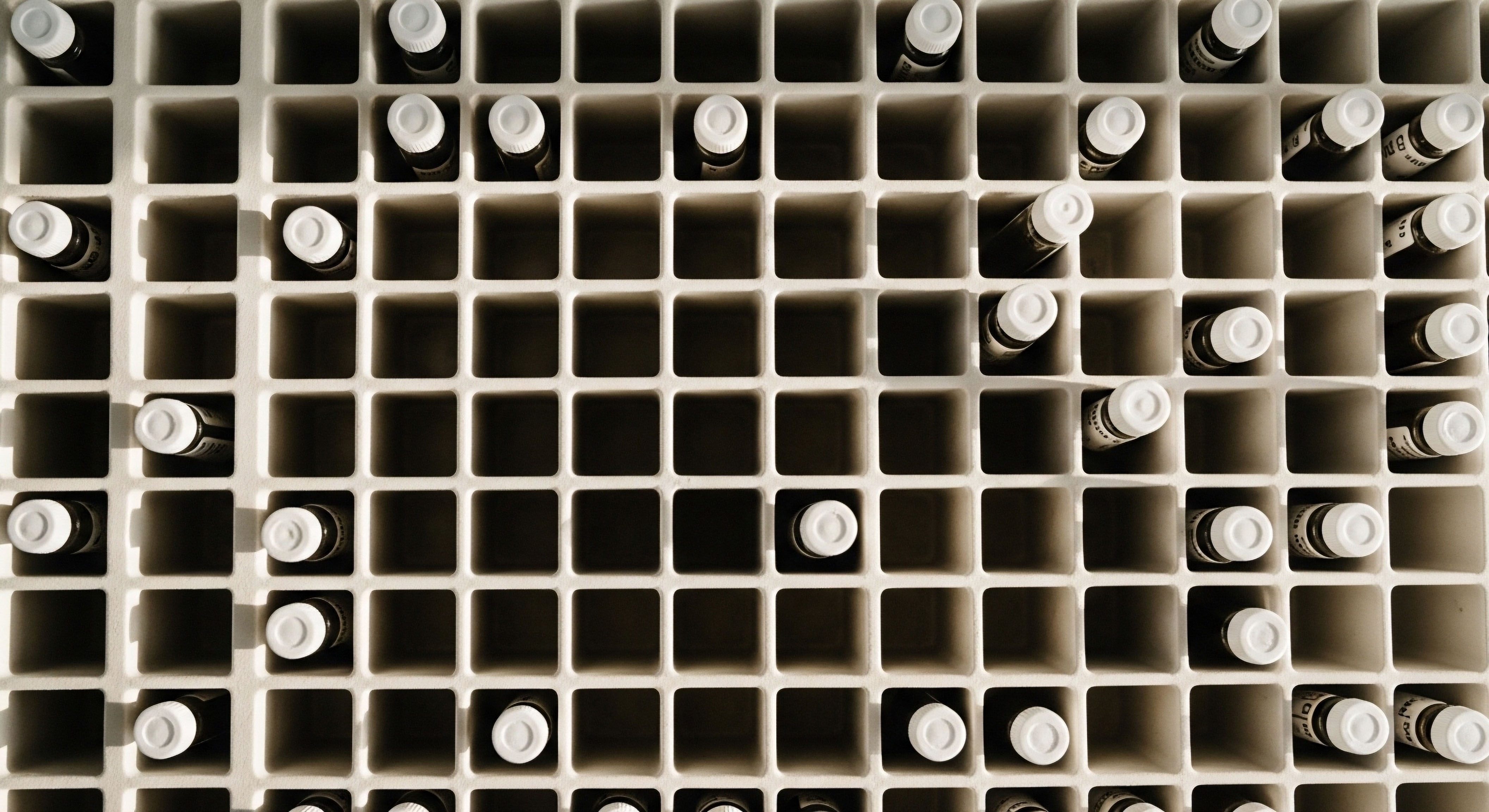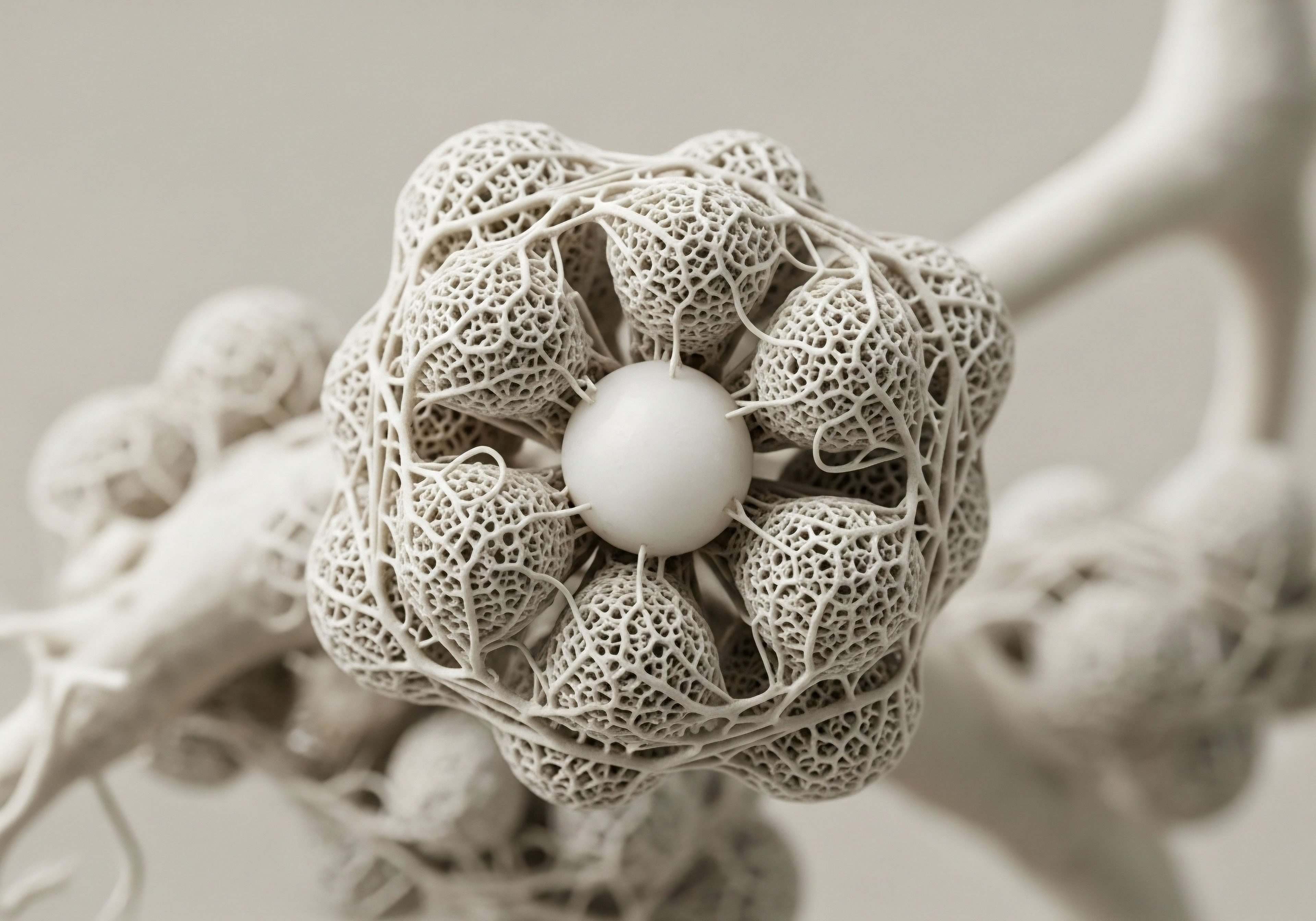

The Nightly Mandate for Cellular Sovereignty
The hours spent in darkness are a biological imperative. This period of quiet is when the foundational work of vitality is performed, a complex series of repair and recalibration protocols that dictate the trajectory of your health and performance.
Sleep is an active state of cellular governance where the body executes its most critical functions ∞ repairing tissue, consolidating memory, and managing the precise chemical signals that govern your energy, mood, and physical prowess. Neglecting this process is a direct assault on your biological potential, accelerating cellular aging and system-wide decline.
Every moment of wakefulness introduces stress and metabolic byproducts, inflicting micro-damage upon your cellular machinery and DNA. The nightly recharge is the body’s dedicated operational window to counteract this daily entropy. During deep, non-REM sleep, the system initiates a powerful cascade of restorative processes.
Protein synthesis increases, providing the raw materials for tissue regeneration and muscle repair. Simultaneously, the brain’s glymphatic system activates, a cleansing mechanism that flushes out metabolic waste accumulated during the day, a process vital for maintaining cognitive sharpness and neurological health. This is the period where the body wages a silent war against aging itself.
Recent research involving over 172,000 adults reveals a significant link between adequate sleep and longevity. Men who get enough sleep tend to live approximately five years longer than those who don’t, while women experience an average increase of two years.

The Hormonal Consequence of Sleep Debt
Failing to meet the body’s sleep requirements triggers a cascade of hormonal dysregulation. The delicate balance between anabolic (building) and catabolic (breaking down) states is disrupted. Levels of cortisol, the primary stress hormone, remain elevated, promoting inflammation and muscle breakdown while hindering recovery.
This chronic catabolic state sabotages physical progress and accelerates the aging process at a cellular level. The cumulative effect is a system perpetually in a state of emergency, unable to perform the deep restorative work necessary for peak function and longevity.


The Cascade of Hormonal and Cellular Renewal
The nightly recharge is a precisely orchestrated biochemical event, governed by the circadian rhythm. As darkness falls, the pineal gland begins its release of melatonin, the hormone that signals the initiation of the sleep cycle. This is the master switch that allows the body to transition into its restorative state. The process unfolds across distinct stages, each with a unique physiological purpose, working in concert to rebuild and optimize the human system from the inside out.
The most profound regenerative activity occurs during non-REM deep sleep. In this phase, the pituitary gland releases a significant surge of human growth hormone (HGH). This powerful anabolic hormone is a primary driver of cellular repair, stimulating tissue growth, protein synthesis, and bone strengthening.
It is during these precious hours that the physical damage from intense training and daily stress is mended. The body literally rebuilds itself, laying down new, stronger tissue and reinforcing its structural integrity. Studies confirm that approximately 75% of the daily secretion of HGH occurs during these deep sleep stages, highlighting the non-negotiable role of sleep in physical optimization.

The Sleep Stage Blueprint for Renewal
The architecture of sleep is designed for maximum efficiency. Each cycle moves through different stages, each contributing a specific element to the overall process of restoration.
- NREM Stage 1 & 2 (Light Sleep) ∞ The body begins to disengage from the external world. Heart rate and body temperature drop. This is the preparatory phase, setting the stage for the deeper, more restorative work to come.
- NREM Stage 3 (Deep Sleep) ∞ This is the epicenter of physical repair. HGH release peaks, driving cellular regeneration. The immune system is fortified, and the body’s energy stores are replenished. This stage is paramount for physical recovery and adaptation.
- REM Sleep ∞ While physical restoration is reduced, this stage is critical for mental and cognitive optimization. The brain becomes highly active, consolidating memories, processing information, and clearing neurological waste. It is during REM that testosterone levels also see a natural rise, contributing to libido, muscle mass, and overall vitality.
During sleep, the body activates DNA repair mechanisms that fix damage from factors like UV radiation and metabolic processes. Total sleep deprivation can lead to a 139% increase in oxidative DNA damage.
This cyclical process repeats several times throughout the night, with the duration of deep sleep being longer in the first half and REM sleep dominating the second. A full, uninterrupted night allows for the completion of 4-5 of these vital cycles, ensuring both physical and cognitive systems are fully recharged.


Timing the Tides of Restoration
Optimizing the nightly recharge requires a strategic approach that extends beyond simply allocating hours in bed. It involves creating a set of environmental and behavioral protocols that align with your innate biological rhythms. The goal is to signal to your body with absolute clarity that the time for deep restoration has arrived.
This begins with managing your light exposure, the most powerful external cue for your circadian clock. Exposing yourself to bright, natural light shortly after waking anchors your internal clock, while minimizing exposure to artificial blue light from screens in the 2-3 hours before bed allows for the natural rise of melatonin.
The environment in which you sleep is a critical component of the optimization protocol. The ideal sleep chamber is a sanctuary dedicated to rest. This means maintaining a cool temperature, as a slight drop in core body temperature is a biological trigger for sleep.
The room must be completely dark, eliminating any light pollution that could disrupt melatonin production. Finally, the environment should be quiet, removing any auditory disturbances that can pull you out of the deeper, more restorative stages of sleep.

Protocols for a High-Performance Night
Executing a successful nightly recharge is about consistency and precision. These are not mere suggestions but operational parameters for anyone serious about maximizing their biological potential.
- Consistent Sleep-Wake Times ∞ Adhering to a regular schedule, even on weekends, reinforces your circadian rhythm, making it easier to fall asleep and wake up naturally. This consistency enhances the quality and predictability of your sleep cycles.
- Strategic Nutrient Timing ∞ Avoid large meals and excessive fluids close to bedtime. A heavy digestive load can interfere with sleep quality. Similarly, stimulants like caffeine have a long half-life and should be discontinued at least 8-10 hours before your scheduled sleep time.
- Thermal Regulation ∞ A cool sleeping environment (around 65°F or 18°C) facilitates the natural drop in body temperature required for sleep initiation and maintenance. A warm bath or shower before bed can also aid this process by causing a subsequent drop in core temperature.
- Mind-State Management ∞ The hour before sleep should be a dedicated wind-down period. This involves disengaging from work, stressful conversations, and stimulating content. Practices like reading physical books, meditation, or light stretching can help shift the nervous system into a parasympathetic (rest-and-digest) state, preparing the mind for sleep.
By implementing these protocols, you are taking direct control over the key variables that govern sleep quality. You are engineering the optimal conditions for your body to execute its most vital restorative functions, ensuring you wake up not just rested, but fully repaired and ready for peak performance.

Mastering the Dark
The conscious pursuit of peak performance is a 24-hour endeavor. The work done in the gym and the discipline applied to nutrition builds the framework, but the hours spent in unconsciousness are when the structure is truly fortified and refined. Viewing sleep as a passive activity is a fundamental misunderstanding of human physiology.
It is an active, targeted, and powerful performance tool. It is the ultimate expression of biological intelligence, a nightly process of renewal that separates the optimized from the merely active. To defy age, to build an elite physique, and to maintain cognitive dominance, you must first learn to master the dark.



